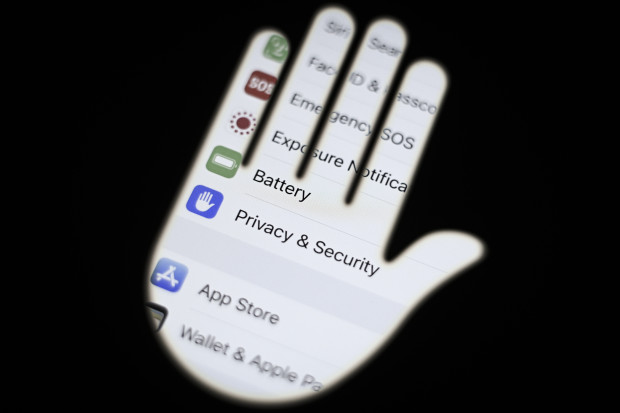
It's an interesting time to be a digital citizen in 2023. The rise of artificial intelligence (AI), smart homes and cities, centralized and decentralized currencies, and autonomous systems should give us pause to consider just how rapidly technology is intensifying — and what it means for the human experience.
Yet we increasingly integrate tech in our day-to-day lives, clamoring for the latest iPhone, wearable device, electric vehicle, leering at TikTok, and pouring our minds out on ChatGPT.
DON'T MISS: Apple just made an acquisition that will give it a massive foothold in this new industry
For better or for worse, our continued use of tech enables companies to capture and leverage our data to make more intelligent systems. This is how Spotify (SPOT) -) and social media can make the best recommendations for you. Algorithms are trained to understand our digital fingerprints and identify our trends so they may better understand us — and keep us coming back.
Not everyone is so fond of data collection, though, and some are even convinced large data collection companies harbor malice. And a recent study by the Mozilla Foundation finds some of the most invasive data harboring comes from a place you'd least expect it.
Mozilla study publishes disturbing car privacy revelations
If you're worried your phone or Amazon (AMZN) -) Alexa devices are listening to you, that may not be your biggest concern. And if you've ever taken reprieve in your car for a private conversation, we've got even worse news for you.
According to Mozilla's findings, cars are the worst places for privacy invasions. All 25 car brands the foundation tested found concerning levels of privacy breaches.
"Car makers have been bragging about their cars being 'computers on wheels' for years to promote their advanced features. However, the conversation about what driving a computer means for its occupants' privacy hasn’t really caught up," Mozilla writes.
"While we worried that our doorbells and watches that connect to the internet might be spying on us, car brands quietly entered the data business by turning their vehicles into powerful data-gobbling machines. Machines that, because of their all those brag-worthy bells and whistles, have an unmatched power to watch, listen, and collect information about what you do and where you go in your car."
Mozilla breaks down four main reasons why it finds car privacy (or lack thereof) so concerning. They are:
- They collect too much personal data (all of them)
- Most (84%) share or sell your data
- Most (92%) give drivers little to no control over their personal data
- We couldn’t confirm whether any of them meet our Minimum Security Standards
Perhaps the most concerning aspect of the study is that each car brand Mozilla tested failed miserably in the privacy test. The foundation finds that cars are collecting more data than necessary for driving, and cars are in a unique position to collect a lot of data about you, since they take you almost everywhere.
"They can collect personal information from how you interact with your car, the connected services you use in your car, the car’s app (which provides a gateway to information on your phone), and can gather even more information about you from third party sources like Sirius XM or Google Maps. It’s a mess," the study says.
Additionally, over half (56%) of car brands tested will share your data with government agencies or law enforcements from a simple request -- not a formal one. 84% of those tested will share your data, and 76% can sell it.
The takeaway here is that, if you drive a modern car with smart capabilities such as trackers, sensors, camera, and preinstalled apps, it's probably tracking you.
Only two brands, Renault and Dacia (owned by parent company Renault Group (RNSDF) -)) say you have a right to your data being deleted.
As for the worst brands, Tesla (TSLA) -) and Nissan (NSANF) -) received the most concerns from Mozilla. Tesla, for its part, is the second company in Mozilla's history to receive a mark or "ding," as it's called, in every privacy category. Nissan came in second-to-last for other invasive metrics, such as retaining data on "sexual activity," and "genetic information."
If you're concerned about cars collecting your personal information and want to do something about it, Mozilla has created a petition to get car companies to stop the overreaching practice. You can sign it here.







